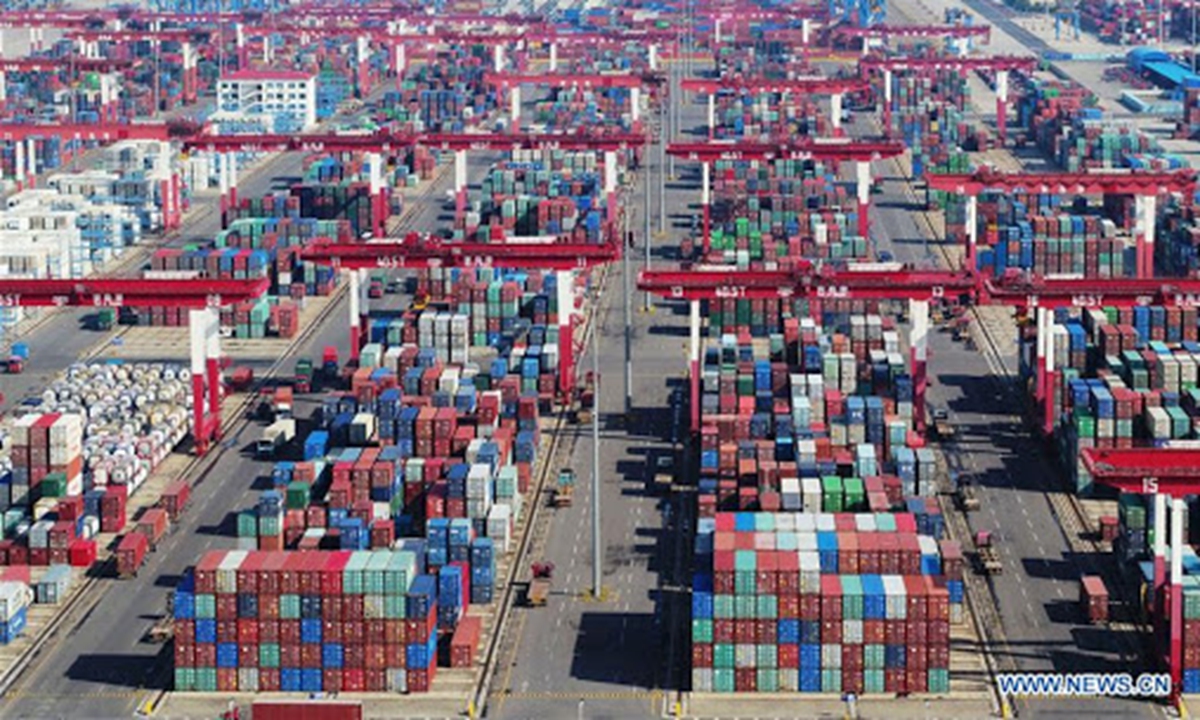
File Photo: Xinhua
The Ministry of Commerce (MOFCOM) said on Thursday that China's anti-dumping probes are initiated in response to applications from domestic industries, and strictly adhere to both national regulations and international rules set by the World Trade Organization (WTO).
In response to remarks made by Executive Vice-President of the European Commission Valdis Dombrovskis concerning China's import probes, MOFCOM spokesperson He Yadong noted that China ensures transparency and fairness during the investigation process and guarantees the rights of all stakeholders.
Dombrovskis expressed hope that China's trade subsidy investigations into EU products would be fact-based and abide by the rules. Dombrovskis stressed that the EU's own trade subsidy probes against China are grounded in rules, facts and figures, South China Morning Post reported on January 25.
But EU investigations into Chinese products, especially the probe into Chinese electric vehicle (EV) exports, have not followed WTO rules, Sun Yanhong, a senior research fellow at the Institute of European Studies under the Chinese Academy of Social Sciences, told the Global Times on Thursday.
According to the WTO's anti-subsidy regulations, the EU is required to first demonstrate that Chinese EVs have received subsidies and that this has impacted local manufacturers. However, they have neither proved the receipt of subsidies nor shown that local EU production of EVs has been affected by imports from China, Sun explained.
The EU largely relies on imports for its EV market, with domestic production being minimal. Chinese EV exports have not disrupted the market for locally produced vehicles in Europe, Sun added.
He clarified that Chinese probes meticulously follow China's legal framework and WTO guidelines, with verdicts based solely on factual evidence and impartial analysis. He called on WTO members to adhere to WTO rules in trade subsidy investigations and not to treat trade subsidies measures as tools for trade protection.
MOFCOM emphasized that China's trade investigations are conducted in accordance with the rules, and aim to foster a harmonious atmosphere that is conducive to bilateral consultations. There is no desire to escalate trade conflicts, Sun noted.
China and the EU remain significant bilateral trade partners, with China-Europe freight trains under the Belt and Road Initiative (BRI) increasingly influencing cross-continent trade and bringing Chinese products to Europe amid tensions in the Red Sea.
